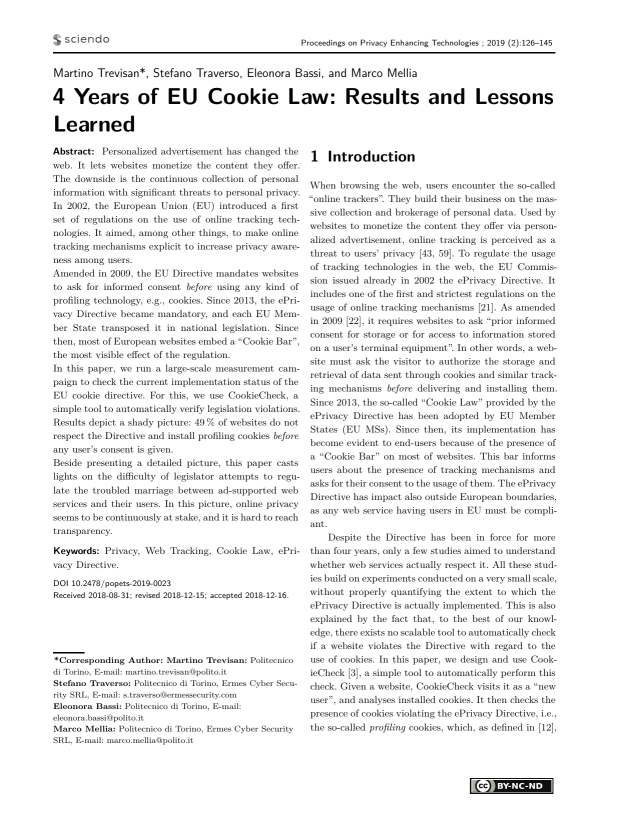4 Years of EU Cookie Law: Results and Lessons Learned
Authors: Martino Trevisan (Politecnico di Torino), Stefano Traverso (Politecnico di Torino, Ermes Cyber Security SRL), Eleonora Bassi (Politecnico di Torino), Marco Mellia (Politecnico di Torino, Ermes Cyber Security SRL)
Volume: 2019
Issue: 2
Pages: 126–145
DOI: https://doi.org/10.2478/popets-2019-0023
Abstract: Personalized advertisement has changed the web. It lets websites monetize the content they offer. The downside is the continuous collection of personal information with significant threats to personal privacy. In 2002, the European Union (EU) introduced a first set of regulations on the use of online tracking technologies. It aimed, among other things, to make online tracking mechanisms explicit to increase privacy awareness among users. Amended in 2009, the EU Directive mandates websites to ask for informed consent before using any kind of profiling technology, e.g., cookies. Since 2013, the ePrivacy Directive became mandatory, and each EU Member State transposed it in national legislation. Since then, most of European websites embed a “Cookie Bar”, the most visible effect of the regulation. In this paper, we run a large-scale measurement campaign to check the current implementation status of the EU cookie directive. For this, we use CookieCheck, a simple tool to automatically verify legislation violations. Results depict a shady picture: 49 % of websites do not respect the Directive and install profiling cookies before any user’s consent is given. Beside presenting a detailed picture, this paper casts lights on the difficulty of legislator attempts to regulate the troubled marriage between ad-supported web services and their users. In this picture, online privacy seems to be continuously at stake, and it is hard to reach transparency.
Keywords: Privacy, Web Tracking, Cookie Law, ePrivacy Directive.
Copyright in PoPETs articles are held by their authors. This article is published under a Creative Commons Attribution-NonCommercial-NoDerivs 3.0 license.

